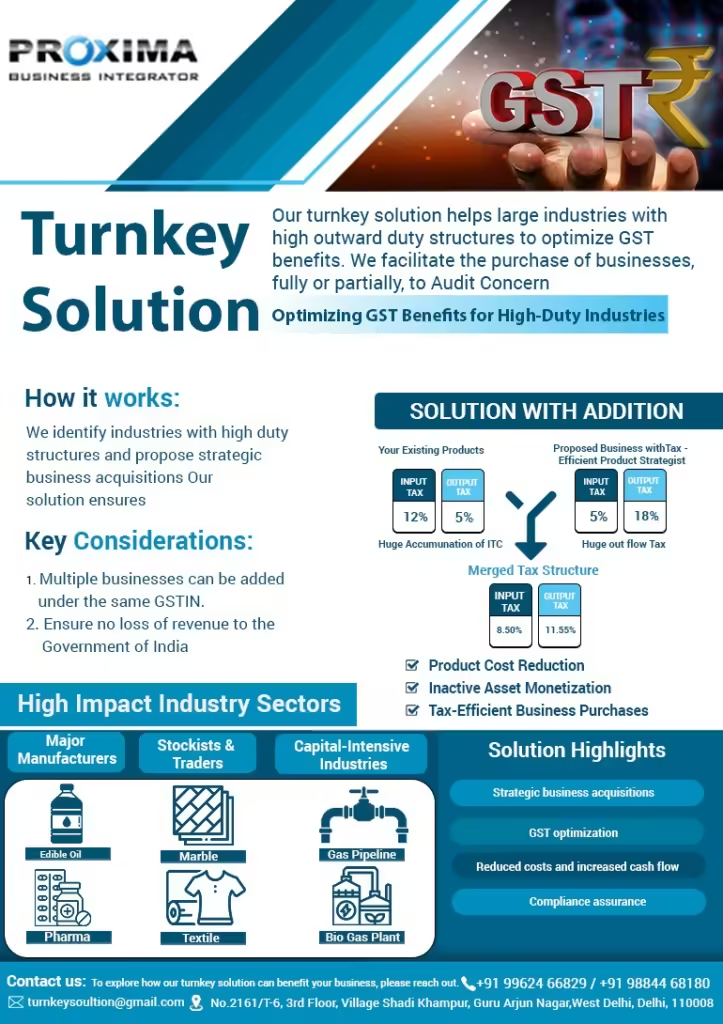Table of Contents
In a major relief to Patanjali Foods, the Karnataka High Court has held that the Excise And Service Tax Commissioner has not made any claim before the interim resolution professional (IRP) during the Corporate Insolvency Resolution Process (CIRP) and the demand not having been part of the resolution plan, has stood extinguished and cannot be continued.
The bench of Justice C.M. Poonacha has observed that the resolution plan in respect of the assessee having been accepted by the Tribunal, the question of the assessee being wound up does not arise. Hence, it is clear that Rule 22 of the 1982 Rules would not be attracted in a case where the resolution plan has been approved by the IBC. Hence, the Tribunal ex facie erred in holding that by virtue of Rule 22 of the 1982 Rules, the appeal would abate.
Also Read: VAT ALREADY PAID ON SUPPLY OF DIESEL GENERATOR SETS, NO SERVICE TAX PAYABLE: CESTAT
Background
The appellant/assessee (originally known as Ruchi Soya Industries Limited) is engaged in the manufacture of Edible Refined Oils and having its factory at Baikampady Industrial Area, Mangaluru.
Consequent to the show cause notice dated 26.3.2012 issued by the department, Order was passed on 2.11.2012 and issued on 8.11.2012, in which the Commissioner of Central Excise and Sale Tax ordered that an amount being the Central Excise Duty on “RBD Palm Stearin” manufactured and removed, during the period 14.7.2009 to 26.8.2011 was confirmed.
An amount to paid by the assessee was appropriated against the demand and the remaining duty was demanded. The assessee preferred an appeal in Excise Appeal challenging the demand before the CESTAT.
During the pendency of the appeal, an order under Section 7 of the Insolvency and Bankruptcy Code, 2016 was passed by the National Company Law Tribunal, Mumbai Bench. The NCLT ordered commencement of Corporate Insolvency Resolution Process against Ruchi Soya Industries Ltd., and an Interim Resolution Professional was appointed to carry out the functions as per the IBC. Pursuant to the order, a public announcement was issued on 21.12.2017.
The NCLT and other connected matters, accepted the modified resolution plan and approved the same, consequent to which change in control of the assessee has taken place and the name of Ruchi Soya was changed to Patanjali Foods Limited as is forthcoming from the Certificate dated 24.6.2022 issued by the office of the Registrar of Companies, Mumbai.
The assessee namely Patanjali filed Miscellaneous Applications before the CESTAT placing on record the subsequent events of the CIRP of Ruchi Soya.
The assessee contended that the demand for the period July 2007 to August 2011 in relation to the assessee has stood extinguished since no claim was filed by the revenue before the IRP. The application was opposed by the revenue before the CESTAT contending that consequent to the approval of the resolution plan by the NCLT, the appeal filed by the assessee has been abated as per Rule 22 of the CESTAT (Procedure) Rules, 1982 and the Tribunal becomes functus officio.
The CESTAT held that the appeal of the assessee has abated as per Rule 22 of the 1982 Rules.

Arguments
The assessee contended that CIRP proceedings were ordered against the assessee – Ruchi Soya and consequent to the modified resolution plan approved by the committee of creditors during the CIRP, which has been approved by the NCLT, Patanjali has continued the business of Ruchi Soya. The revenue did not make a claim before the IRP with regard to the Excise Duty demanded and having regard to Section 32A of the IBC.
Conclusion
The court noted that Section 5(26) of the IBC as noticed above that the resolution plan is proposed by the applicant for continuing the business of the company as “a going concern”. It is forthcoming that under the Scheme of the IBC, Part II contemplates Insolvency Resolution and Liquidation for Corporate Persons. Chapter II in Part II contemplates Corporate Insolvency Resolution Process and Section 6 to Section 32A deals with the same. Chapter III in Part contemplates Liquidation Process and Section 33 to Section 54 deals with the same. Hence, it is clear that by a resolution process the company continues its business and only by a liquidation process, the business of the company would be wound up.
The court while allowing the appeal held that any creditor including the Central Government, State Government or any local authority is bound by the resolution plan once it is approved by an adjudicating authority under Section 31(1) of the Insolvency and Bankruptcy Code, 2016.
Relief to Patanjali – Is Excise And Service Tax Commissioner Bound By Resolution Plan ?
Yes. In a major relief to Patanjali Foods, the Karnataka High Court has held that the Excise And Service Tax Commissioner has not made any claim before the interim resolution professional (IRP) during the Corporate Insolvency Resolution Process (CIRP) and the demand not having been part of the resolution plan, has stood extinguished and cannot be continued.
Case Title: M/S Patanjali Foods Limited Versus Commissioner Of Central Excise And Service Tax
Case No.: CEA No.6 OF 2024
Date: 30/09/2024
Counsel For Appellant: Rajesh Rawal
Counsel For Respondent: Jeevan J Neeralgi

